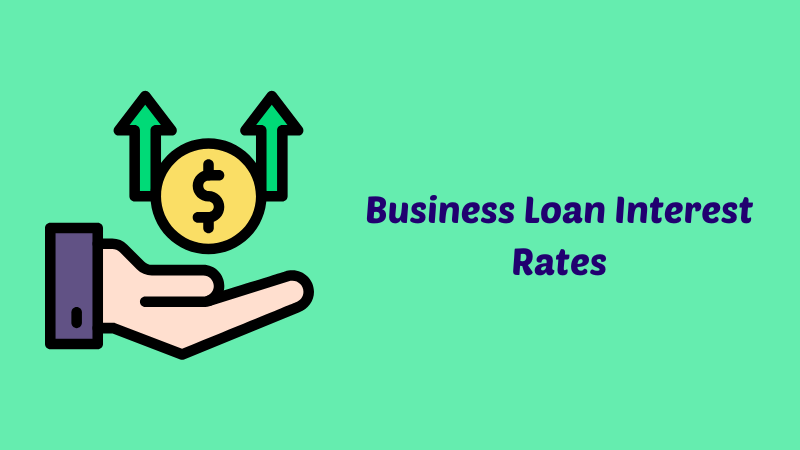Hey there!
Ever feel like navigating business loan interest rates is as complicated as cracking a secret code? You’re not alone. When I first started exploring loans for my own business, I had a million questions: What affects these rates? How do I know if I’m getting a good deal? Can I negotiate? Spoiler alert: you can unlock better rates if you know how to play the game. Ready to dive in? Let’s unravel the mystery together.
In this guide, you’ll learn everything from what business loan interest rates are, how they’re determined, to actionable tips to secure the best rate. Plus, I’ll share some real-world examples and pro tips to give you an edge. Excited? Let’s get started!

What Are Business Loan Interest Rates?
Imagine borrowing money as renting a house. The interest rate is like the rent you pay to use that money. Business loan interest rates determine the cost of borrowing funds for your business. They’re expressed as a percentage and are applied to the loan’s principal amount over a set time.
Key Terms to Know:
- Principal: The original amount borrowed.
- APR (Annual Percentage Rate): Includes interest plus other fees for a full picture of loan costs.
- Fixed vs. Variable Rates: Fixed stays the same; variable fluctuates with market conditions.
Did you know? The average small business loan interest rate in 2024 ranges between 3% and 12%, depending on the lender and loan type. Let’s break down the factors influencing these rates.
What Factors Affect Business Loan Interest Rates?
Business loan rates aren’t pulled out of thin air. They’re influenced by a mix of your business’s financial health and the broader economic environment.
1. Credit Score
Your credit score is like your business’s report card. Lenders use it to assess risk.
- 700+: Excellent – You’re likely to get lower rates.
- 650-699: Good – Competitive rates, but not the lowest.
- Under 650: Risky – Higher rates or potential rejection.
Quick Tip: Check your credit report regularly and correct errors. Even a small boost can save thousands in interest.
2. Type of Loan
Different loans = different rates. Here’s a snapshot:
| Loan Type | Typical Interest Rate |
|---|---|
| SBA Loans | 5.5% – 8% |
| Traditional Bank Loans | 4% – 10% |
| Online Lenders | 8% – 25% |
| Merchant Cash Advances | 20%+ |
3. Business Age and Revenue
New businesses or those with inconsistent revenue may face higher rates. Why? Lenders perceive them as riskier investments.
Pro Tip: If you’re a startup, consider alternatives like microloans or crowdfunding until you establish a stronger financial history.
4. Economic Climate
Interest rates often mirror economic trends. For instance, when the Federal Reserve hikes rates, borrowing costs rise. Conversely, during downturns, rates may drop to stimulate lending.
Want to know a secret? Timing your loan application during a favorable economic period can make a big difference.
How Are Business Loan Interest Rates Calculated?
Let me show you something cool: Understanding how lenders calculate rates can help you negotiate better terms.
Formula Behind the Rates
The basic formula is:
Interest = Principal × Rate × Time
But lenders often use APR, which includes additional costs like origination fees. Always compare APRs for apples-to-apples evaluations.
Real-Life Example
Suppose you borrow $50,000 at a 6% APR for 5 years. Here’s how it looks:
- Monthly Payment: ~$966
- Total Interest: ~$7,960
Isn’t that amazing? A small rate change can significantly impact your total cost.
How to Get the Best Business Loan Interest Rates
Want to snag the best rates? Here’s your game plan:
1. Improve Your Credit
- Pay down existing debt.
- Avoid late payments.
- Limit credit inquiries.
Trust me, I’ve tried this: A 30-point boost in my score once saved me 2% on a loan.
2. Shop Around
Don’t settle for the first offer. Compare rates from banks, credit unions, and online lenders.
3. Consider Collateral
Secured loans (backed by assets) often have lower rates than unsecured ones.
Warning: Defaulting on a secured loan means you could lose your collateral.
4. Negotiate Terms
Yes, you can negotiate! Highlight your strong credit, steady revenue, and growth potential to score better terms.
FAQs About Business Loan Interest Rates
Q1: What is a good interest rate for a business loan?
A: Rates between 4% and 8% are generally considered good, but it depends on the loan type and your qualifications.
Q2: Can I negotiate interest rates with lenders?
A: Absolutely! Lenders often have some wiggle room, especially if you’re a strong candidate.
Q3: How often do interest rates change?
A: Variable rates can change monthly or quarterly. Fixed rates remain constant.
Q4: What’s the difference between APR and interest rate?
A: APR includes additional fees; the interest rate doesn’t.
Q5: Are online lenders trustworthy?
A: Many are, but do your research. Look for reviews and transparent terms.
Conclusion
Business loan interest rates might seem daunting, but armed with the right knowledge, you can confidently navigate your options. Remember, your credit score, business health, and loan type play a huge role. Shop around, negotiate, and always read the fine print.
Got questions or personal experiences to share? Let me know in the comments below. Let’s make smarter financial moves together!